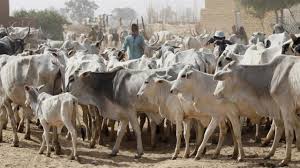Promote Nomadic Education to Curb Farmer-Herder Clashes, Fulani Leaders Urge Government
Fulani leaders across Nasarawa State have called on federal and state governments to revive nomadic education as a strategy to reduce recurring farmer-herder conflicts.
The appeal was made during a stakeholders’ engagement in Lafia, organised by the Fulbe Development and Cultural Organization (FUDECO), with participants drawn from the 13 local government areas of the state.
Speaking at the event, FUDECO State Chairman, Muhammad Habib Hussaini, urged herders to coexist peacefully with farmers and other residents. He said ignorance — fueled by the lack of education — was a major driver of the violent clashes.
“We are calling on the government at all levels to revive and reopen nomadic schools because we see it as a solution to the clashes between herders and farmers,” Hussaini said.
“Most problems in our pastoralist communities stem from ignorance. Educating our children will help them understand the dangers of conflict and the value of peace.”
Hussaini also highlighted FUDECO’s efforts to economically empower women in pastoralist communities. He said over 250 women were trained in various vocational skills and given start-up support through a project funded by UKAID, and implemented with support from the International Development Research Centre (IDRC) and the Supporting Pastoralism and Agriculture in Recurrent and Protracted Crises (SPARC) initiative.
“Our aim is to improve livelihoods and reduce the vulnerability of pastoralist women, thereby addressing the root causes of insecurity and exclusion,” he said.
Lead researcher and sociology lecturer at the Federal University of Lafia, Usman Ibrahim, said the project targeted women who had been excluded from formal education.
“Over 70 percent of pastoralist women have no formal education. With this training, they now have marketable skills and an alternative to crime as a means of survival,” Ibrahim said.
He urged government and private stakeholders to expand support for pastoralist women, noting that joblessness is a major contributor to insecurity in Nigeria.
The meeting also addressed broader challenges facing pastoralist communities, including insecurity, livestock diseases, poor access to basic services, and resource-related conflicts.
The engagement drew participation from security agencies, traditional rulers, religious leaders, Fulani women and youth groups, who all echoed the call for peacebuilding, education, and inclusive development.



[…] to the Okereke family, Madam Mgbafor and her late twin sister, Madam Mgbokwo, were abandoned in an evil forest shortly after birth—victims of the once-widespread belief among locals that […]